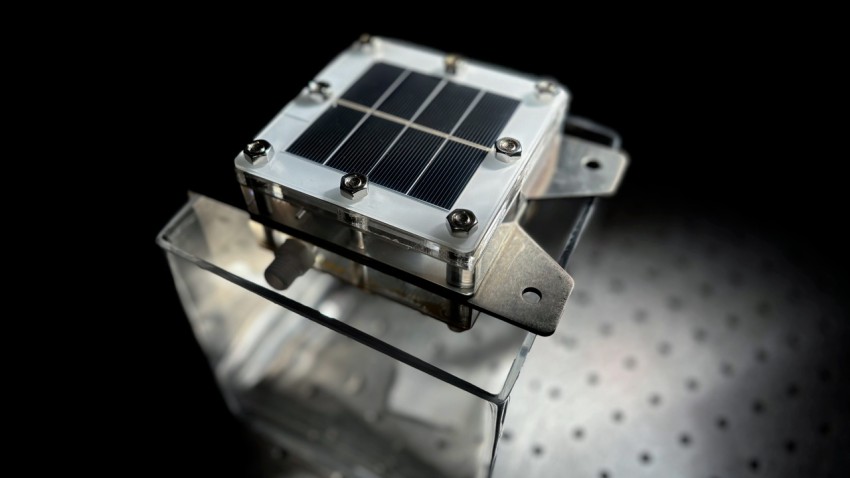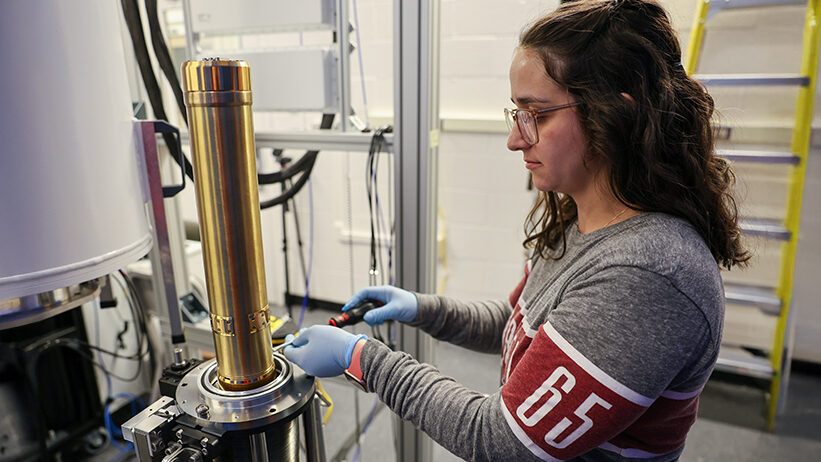News
-
![]()
3D-printed superconductor achieves record performance
Nearly a decade after they first demonstrated that soft materials could guide the formation of superconductors, Cornell researchers have achieved a one-step, 3D printing method that produces superconductors with record properties.
-
![]()
Biodegradable ‘heat bombs’ safely target specific cells
Cornell researchers developed a new way to safely heat up specific areas inside the body by using biodegradable polymers that contain tiny water pockets, a technology that could lead to precise and noninvasive diagnostics and therapeutics.
-
![A Cornell-led team built a 10 centimeter by 10 centimeter prototype device that produces carbon-free “green” hydrogen via solar-powered electrolysis of seawater, with an important byproduct: potable water.]()
Sunlight and seawater lead to low-cost green hydrogen, clean water
Researchers developed a low-cost method to produce carbon-free “green” hydrogen via solar-powered electrolysis of seawater, with a helpful byproduct: potable water.
Latest Awards and Recognition
View all-
Bizyaeva receives outstanding paper award
Anastasia Bizyaeva, assistant professor, has received the 2025 George S. Axelby Outstanding Paper Award,…
December 15, 2025
-
Martínez named distinguished member of the ACM
Jose F. Martínez, the Lee Teng-hui Professor of Engineering, has been named a 2025 Association…
December 12, 2025
-
Lastovicka receives President’s Award
Chris Lastovicka, assistant director of digital strategy for Cornell Engineering marketing and communications, received the…
December 4, 2025
-
Three research teams receive grants
Three Cornell engineering research teams have been chosen as recipients of AI and Climate Fast…
December 1, 2025






